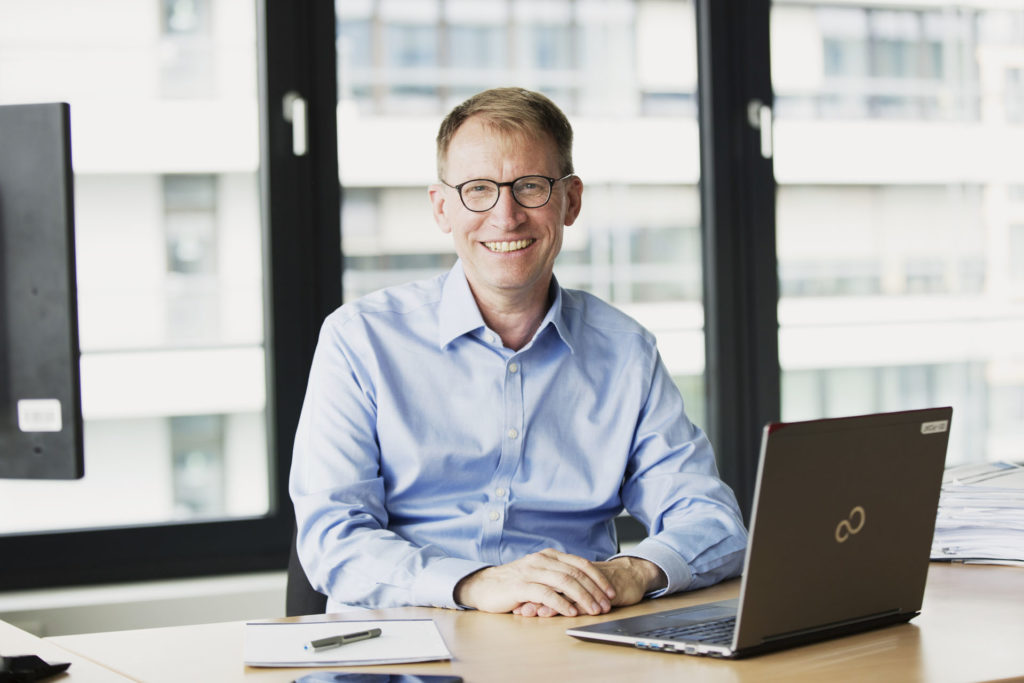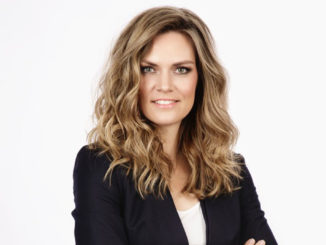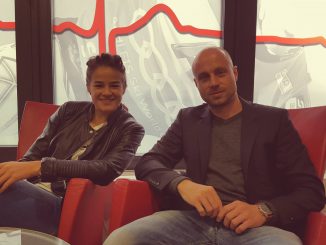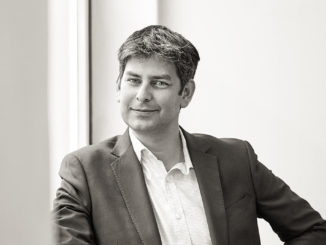
The horrible and brutal death of George Floyd in the USA at the end of May and the resulting worldwide “Black Lives Matter” protests have not left Munich Business School unaffected. Together, representatives of the university have been thinking about how to set a lasting example. Because one thing was clear from the very beginning: As a globally-minded university, MBS rejects discrimination of any kind and without diversity, MBS would not exist. Against the backdrop of burgeoning racism, we would like to carry what we have always stood for – tolerance, openness, and equal rights – more strongly to the outside world, speak out specifically against discrimination, create a discourse, take action within ourselves, and constantly learn in exchange. The interview sets the first cornerstone for this: Professor Dr. Stefan Baldi, Dean of the Munich Business School, MBS Professor Dr. Sophie Hieke, MBA student Tebogo Mazibuko and MBS alumnus Minh Tran talk about their personal perception of diversity and inclusion as well as its significance at MBS and point out where MBS is already positively positioned, but also where there is clearly still room for improvement and how the university can set even stronger impulses for diversity and against discrimination in the future.
MBS Insights: What does diversity and inclusion mean to you?
Prof. Dr. Sophie Hieke: Variety. Beauty. Diversification. All the things that make life worth living. When I think of my students and imagine that everyone is just like me – then I would not experience the joy that teaching in a multicultural, international and diverse setting like MBS gives me. Only when my classroom is as colorful as the world outside can we really discuss topics, bring in different views and opinions, and certainly friction. But above all, we can learn from each other and broaden our horizons. I firmly believe that diversity is the key to creating real value. Value in exchange, value in the development of ideas and solutions and value in human relationships, which are irreplaceably important on every level, private and professional.
Minh Tran: For me, diversity and inclusion stands for an open and inclusive community that celebrates the diversity of the people living in it. No matter what age, gender, sexual orientation, nationality, religion or disability –everyone should be able to feel that they belong without having to adapt. Of course, differences are there, otherwise, there would be no diversity. But one should just not define people by these differences. As a native of Munich with Asian roots, I am often asked about where I am from. “Munich” is often not a sufficient answer, because the question is targeted at my foreign appearance. Even if the intention is usually not bad, that question rarely promotes a sense of belonging. You often find yourself in a situation where you start telling your family story in an attempt to justify why you identify as German. I would be really happy if the answer was simply “Ah, cool!” instead, because actually there is nothing to justify.
Tebogo Mazibuko: When diversity is fostered in an organization, I understand that I am allowed to appear there in my authenticity. Inclusion means that I have a voice and that this voice is also heard. An essential third part is “Belonging”, because an organization should ideally permit and inspire me to thrive and be my best with my uniqueness.
MBS Insights: And what does diversity and inclusion mean at MBS and how is the university confronted with this topic?

Prof. Dr. Stefan Baldi: Diversity and inclusion have always been topics at MBS. Our Code of Conduct as well as our MBS values– innovative, responsible and globally-minded – explicitly refer to diversity. In today’s business world, diversity and inclusion are an important topics and so it is only natural that they also have their place here at a modern business school. We are one of the most international business schools in Germany with over 70 nations represented on a single campus – this diversity can be seen as a challenge, but we prefer to see it as an unique opportunity! We also have a look at other dimensions of diversity beyond ethnicity or international background. This is why we agreed to sign the Charta of Diversity to support diversity at the workplace.At the same time we see our responsibility beyond the workplace and will extend this to the whole MBS Community to include all students, faculty, and staff. While I don’t see racism or discrimination as a major problem within MBS, we are all confronted with it in the world around us and that is why we, as a university, have a responsibility to take a stand and raise awareness and support discriminated groups. Just as sexism or discrimination against women is not only a “women’s issue” racism is not only a issue of Black and People of Color. When the majority stays quiet, it actively serves to cement the status quo. So, these are not only issues we’ll have to empathize with but MBS has to be an active agent of change. The brutal death of George Floyd earlier this year and the resulting discussions have made this even clearer to us. We thought about how we as a university should react and decided not to just post a hashtag or a black picture on a single day, but to position ourselves more strongly for diversity and against discrimination.
MBS Insights: In which dimensions of diversity do you think MBS is already positioned positively?
Prof. Dr. Stefan Baldi: We’ve been following and tracking some visible and well documented dimensions of diversity in the last years. As already mentioned, we are one of the most international business schools in Germany and are investing a lot into this. There are still some regions underrepresented and we are discussing the right mix for an international business school located in Germany.
Furthermore, we have a 50:50 gender balance in our student body. In recent years we also started several initiatives to specifically support women in leadership roles. Our age spectrum has widened at MBS by our extended MBA and Executive and Education offers and ranges from 17 to 50 years. In the future it will be important to make even better use of this age range and bring the generations closer together so that they can learn from each other.
In addition, there are others, less visible dimensions of diversity that definitely exist at MBS, such as religion or sexual orientation. Even though both dimensions are regarded more private matters in our culture, nobody at MBS should be afraid to share and show his or her religion or sexual orientation. I wish people would be more open towards their orientation and connect with like-minded people to support each other. Here, the university should provide a platform for networking and exchange.
MBS Insights: Tebogo and Minh, how do or did you perceive diversity in your everyday study life at MBS?

Tebogo Mazibuko: Tebogo: I am aware that Black and other non-white people are in the minority overall, so I didn’t have high expectations when it came to diversity in terms of race and ethnicity at MBS. This makes me all the more surprised and pleased that the learning material deals with different perspectives and that, for example, we looked at a case study of a South African major entrepreneur in the International Management course, whereupon my fellow students asked me many trade-related, political and social questions about my home country South Africa. On another level of diversity, it is very inspiring and refreshing for me to meet women throughout my entire study experience at MBS who have taught me important things and supported me in many projects.
Minh Tran: I chose Munich Business School as my study location because of its international character. My fellow students came from many different countries. So there was no “normal” and no “standard”. We were rather able to create our own framework to which everyone contributed something with his or her own culture.
MBS Insights: How do you think MBS can create a positive learning environment for all students regardless of nationality, religion, skin color, sexual orientation or gender? What is MBS already doing well here, where is there still room for improvement?
Minh Tran: In my opinion, a positive learning environment for all students is created when factors such as nationality, religion, skin color, sexual orientation or gender play no role. At MBS, it was never important where you come from or what skin color you have. It is more important to look at what values you represent. Innovative, responsible and globally-minded – these are the values of MBS and this is how I perceived the university. I think that MBS has created an environment in which different cultures can meet without creating tension. This enables a great learning atmosphere.
Tebogo Mazibuko: I take a positive view of the fact that seminars and other courses are offered in both German and English, that the professors are diverse and have extensive international work and life experience, and that MBS also recognizes and celebrates festivals of other cultures, such as the Indian festival of lights Diwali. Beyond that, it sometimes seems that non-white and non-European students face greater challenges. This applies, for example, to our experience with the German public authorities, where many contracts and forms are only available in German. MBS should also make sure that there is no misleading impression of discrimination. For example, in the MBA, where there are even more international students than in the Bachelor’s and Master’s programs, we had fewer excursions to companies than in the other study programs. But especially for us international (MBA) students it is very important to be supported in preparing our career in Germany, as we are new in the country.



